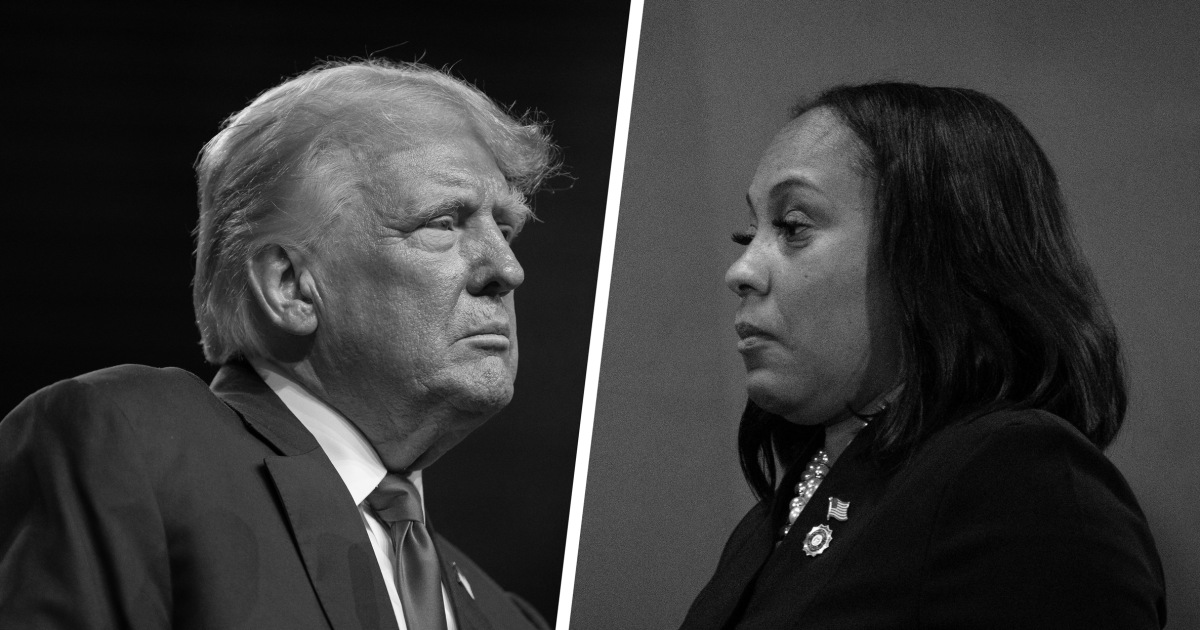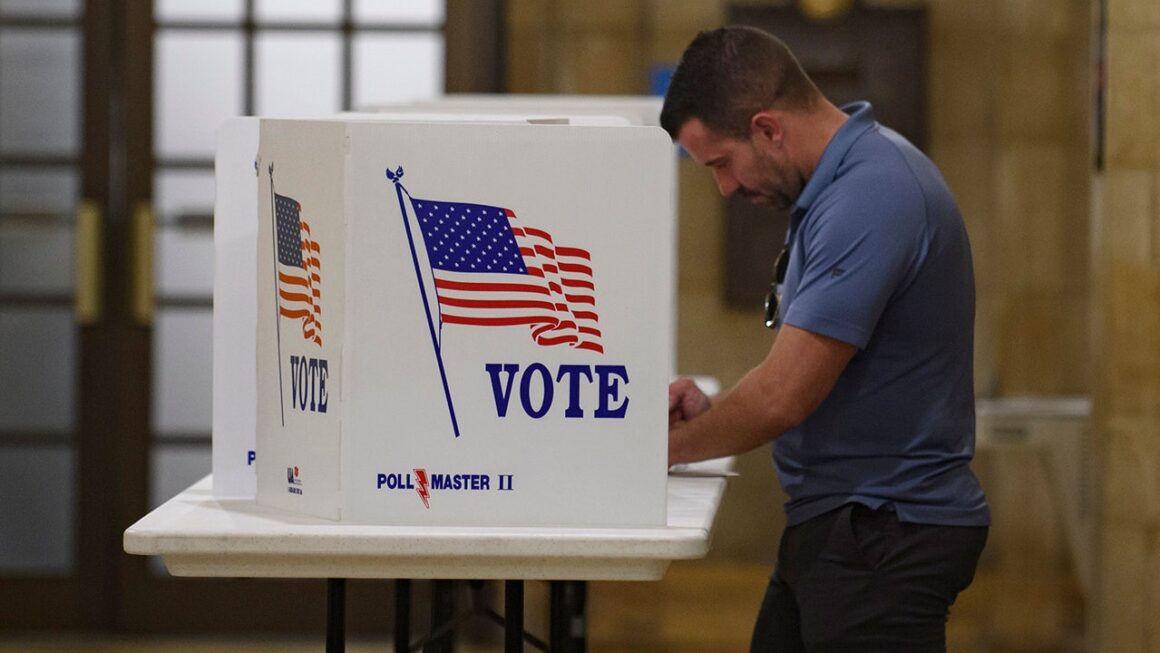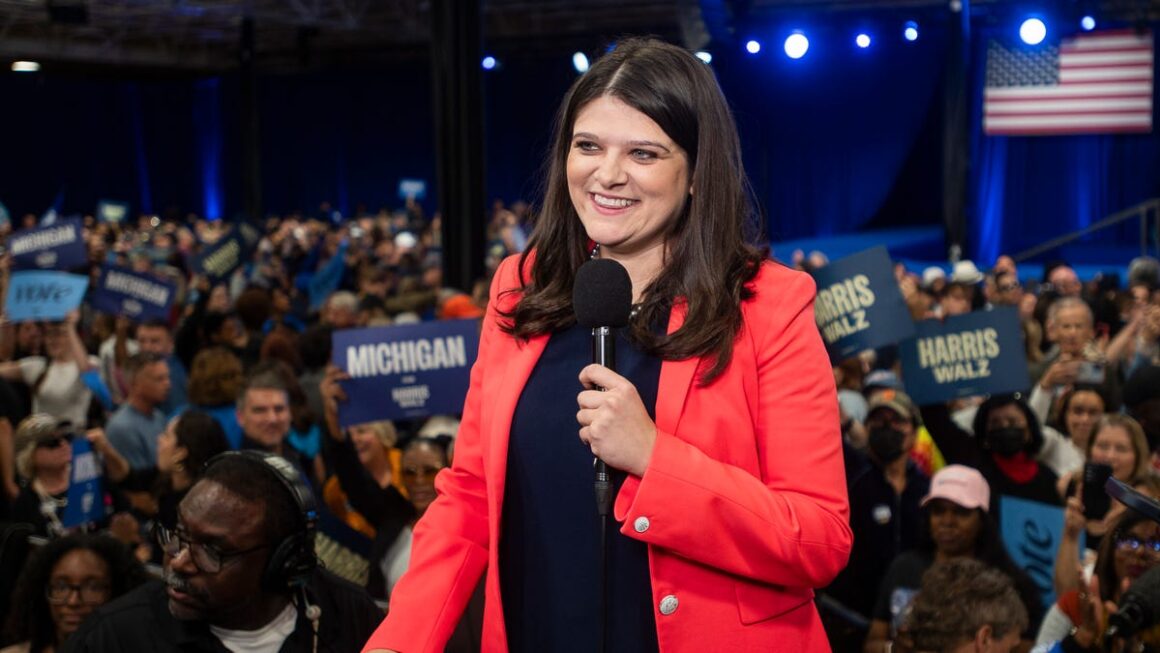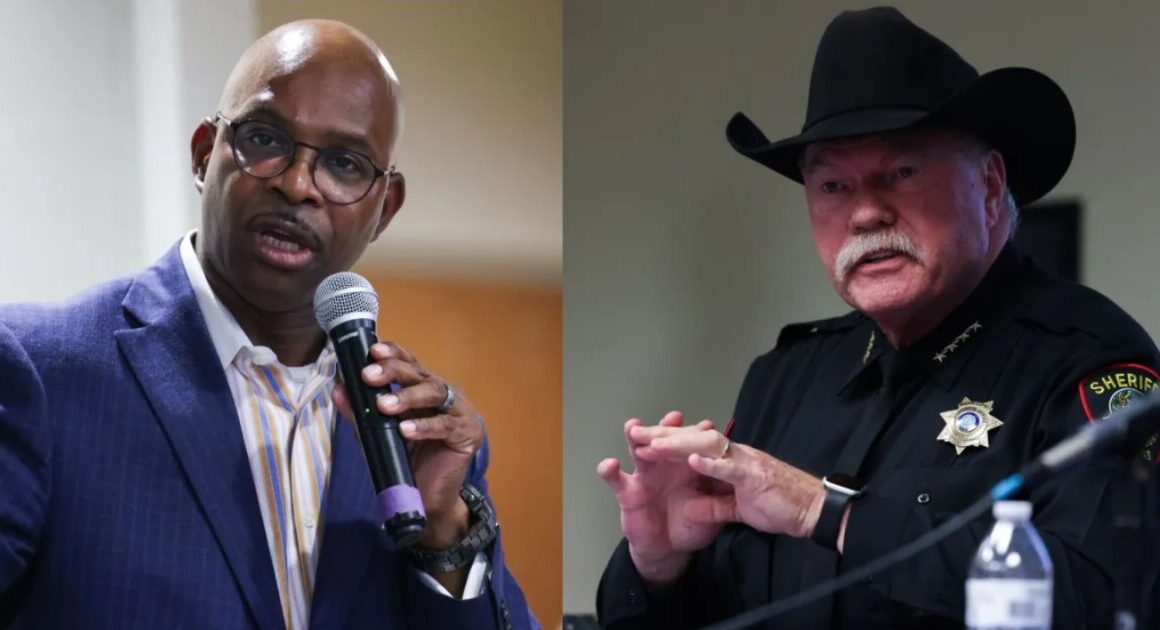The issue of race permeates Donald Trump’s Georgia state election interference case brought by Fulton County District Attorney Fani Willis. Trump’s latest court filing in a pretrial appeal seeking Willis’ disqualification reminds us that it surfaces in a legal claim, specifically.
At least, the former president — who has harnessed racism for his political ends — wants it to be an issue that kicks Willis off the case or even gets it dismissed.
Recall that, back in March, Judge Scott McAfee declined to force Willis’ removal. The defense had alleged a conflict of interest stemming from her romantic relationship with special prosecutor Nathan Wade. McAfee didn’t find an actual conflict but said the appearance of impropriety required Willis or Wade to step down, and the latter did.
Responding to a separate defense claim, relevant to Trump’s new court filing on Monday, McAfee criticized a speech that Willis gave at an Atlanta church whose effect, the judge wrote in his March ruling, “was to cast racial aspersions at an indicted Defendant’s decision to file this pretrial motion.” Yet the trial judge concluded that Willis didn’t cross the line to the point of denying a fair trial or requiring her disqualification.
The state criminal case, in which Trump has pleaded not guilty, has been on hold pending the appeal, where this issue is the focus of the GOP presidential nominee’s latest filing to Georgia’s state appeals court. “Willis falsely declared that allegations against her stemmed from racism to hide the fact that they were true,” his lawyers wrote of the prosecutor, who is Black. She “obviously intended that every potential Fulton County juror who heard or read Willis’ racist speech should label the defendants as racists,” the lawyers added.
While McAfee criticized Willis in his ruling, Trump’s lawyers argued in their appellate filing that “the mere verbal rebuke of Willis by the trial judge was utterly insufficient — it demanded disqualification.” In rejecting the defense claim, McAfee wrote that Georgia law on so-called forensic misconduct is unclear in terms of the relevant standard for determining disqualification. That could make it more of an open question how the courts resolve the appeal, which has been set for oral argument in December. If Willis and her office are disqualified, that would raise questions of when or even whether the case could go forward with a new prosecutor’s office.
Defending McAfee’s bottom line in keeping her on the case, Willis’ office wrote earlier this month that the judge didn’t abuse his discretion “in finding that none of the District Attorney’s statements were capable of permanently impairing the fundamental fairness of any future trial and that, as a result, disqualification was not appropriate.”
To be sure, this disqualification issue is separate from the underlying substance of the case, in which Trump and others were charged a year ago for their alleged attempts to subvert the 2020 presidential election in the state. And there are other issues to resolve before the case can proceed to trial, including the effect of the Supreme Court’s July 1 immunity ruling.
If Trump is elected in November, more attention may be drawn to his state criminal cases, which presidents don’t have the power to pardon or dismiss, as Trump’s lawyers try to overturn his New York state guilty verdicts based on the immunity ruling. But whether Trump wins or loses in November, the fate of the Georgia case may not become clear for some time.
Subscribe to the Deadline: Legal Newsletter for updates and expert analysis on the top legal stories. The newsletter will return to its regular weekly schedule when the Supreme Court’s next term kicks off in October.
![]()





